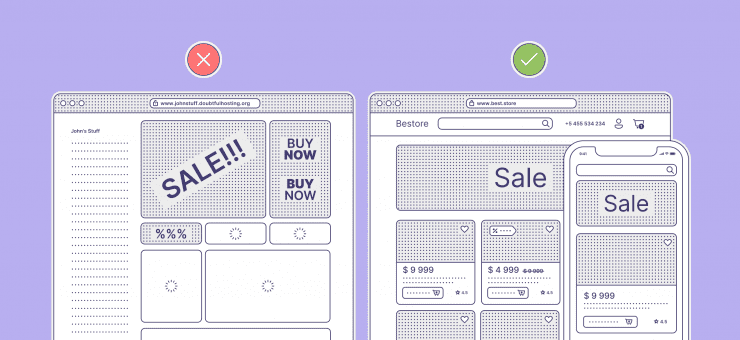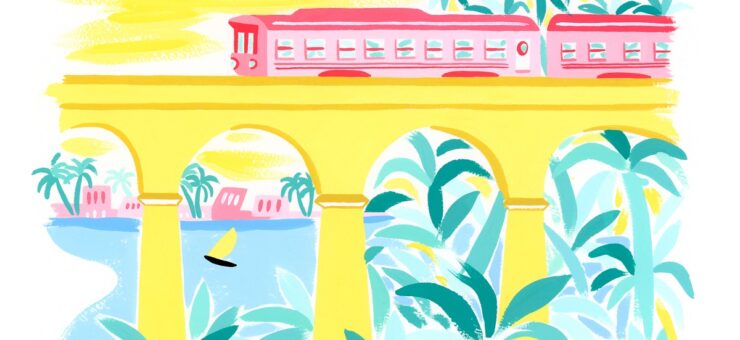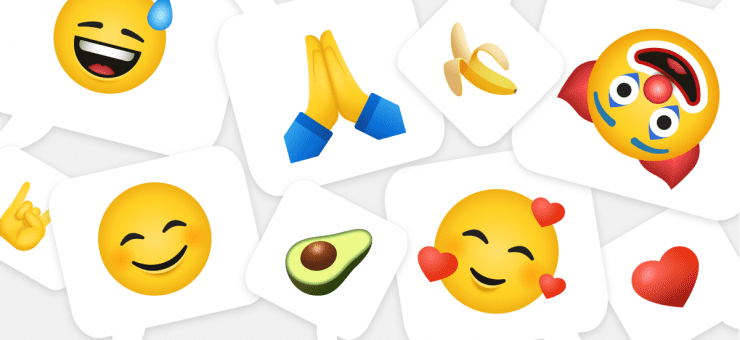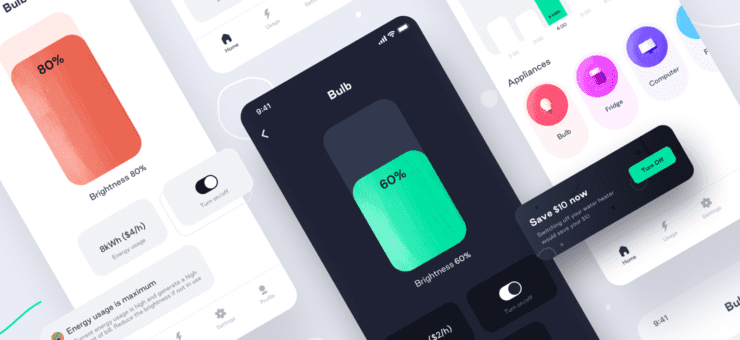How can you make your blog more attractive? Among many ways of getting it done, the simplest way is to use blog images that catch people’s eye. Here we will discuss some effective ways to employ pictures to bring more people to your blog. Let’s combine the best practices with basic human psychology to improve the methods that will change the way you write and decorate blogs.
Let’s begin with understanding the influence that visual media can have on the readers who visit your website.
The Power of Visual Media
Blogs are the new and growing source of instant knowledge. Whenever we hit an informative roadblock, our hands move to grab a smartphone. Informative articles, news, bizarre facts, or anything, blogs have become the first point source of information for nearly 4.68 billion mobile phone users.
Illustrations, photographs, icons, memes, and all the stuff like that add multiple dimensions to our eyes. They add something that is beyond the words, something intangible. For example, look at the picture below.

Now suppose I am narrating a short story about an imaginary city called Auphalese and I am placing this image just before the story begins. Then I go on to tell the tale of Tom, the cat in the town of Auphalese, and his happy life there.
Naturally, without any prompting, your mind will assume the picture above as Auphalese and will impose Tom, the cat on to this imaginary city. That is the power of visual media. And when it combines with the writing, a close to real-life experience is felt.
If you are a writer, then images will enhance the readability of your content. It will help penetrate the readers’ mind more intensely and convincingly. The aesthetic and intangible value that pictures add to your writings is quite significant. Hence, it is a skill that every blogger should master.
There’s more to it; the vibrant Auphalese is now going to stay in your memory for quite some time. Images make your blogs more memorable to your readers. It is simple psychology that photographs are retained more by memory than words. Psychologists call it the “Pictorial Superiority Effect.” Let’s discuss some of the best practices to enhance your blog with intelligent use of images.
Mind the Law Trap
Just click on Google images and type “Himalayan Flowers,” then enjoy the splendid show of those exotic wild orchids. It is quite natural if you are feeling like making one of them the title image for your next blog. But beware, you may have to pay a heavy price for it. The images that you see in Google, Yahoo, Bing, etc. are not free; you need to get the rights for them before you publish them in your blog.
There are free stock picture sites that give you free images like Pexels, Pixabay, Moose, and others. However, be wary of websites which index paid pictures as free ones. Charles Dickens said, “Law is an ass.” And, he is right in a way because you are the one who is going to get into trouble for using the images. Paying a little for such stunning pictures would be a boost up for the artists and photographers. It will be a proper step if it doesn’t hurt your wallet.
Another way is to take your picture. Look at the image below:
This picture taken in a Samsung Galaxy Nexus looks incredible. The world has come a long way from the Galaxy Nexus era. Today, even the budget phones come with decent a camera. So, the ingenious technique is to go for it yourself. And, who knows, you may see things that others have never seen because nature manifests itself in infinite ways and two eyes are never the same.
Enthralling Featured Images
What is it that brings people to your blog? From the content side, it is the words that you put in your headline. But that is only a portion of the whole cake. The real pull comes from the feature image that decorates your title line. Even a motherly blog like this will grab your attention because the title is simply unique.
So, pack a punch in your title in words and illustrations.
Now, let us try with this image.
A title like “APP THAT DOES IT FOR YOU IN ONE TOUCH,” for the above image is going to bring many tech-savvy readers to this blog. But why?
One, the title is simple; even a person with medium level knowledge of English can get it. Second, contemporary relevance. Today, creating a mobile app is much, and every day, a new app is knocking on our creative space to make life much more comfortable. Third, the element of surprise. The title doesn’t reveal everything but just enough to keep the reader wanting for more. It doesn’t tell what the app does; that’s for you to find out.
Involve Storyline Technique
Everyone loves stories. It is one of the most innovative approaches to writing online. Narrate the information with a storyline. Pictures like the one above, taken from the library of free vectors, is neither blinding nor dull but gives a hint of an exciting tale ahead grab people’s attention. Even gross technical information can be presented as compelling narratives.
Space Matters
The spacing of paragraphs is a crucial factor that determines the readability of an article. It is almost a rule of thumb, be it a printed article or an online blog. Blogs in which texts are stacked together create an aversion to readers. To make your website user-friendly, you need to place relevant pictures at regular intervals. Standard practice is to break the text at every 350 words and insert some form of an image to refresh the readers. You could use tools as the Golden Ratio Typography Calculator featured above.
Optimize Images for SEO
According to Statista, in 2018 almost 50% of the views around the world were through mobile phones. And it is not possible to ignore this fact while publishing blogs. Secondly, Google’s open support for mobile-friendly sites in ranking makes it imperative that make your blog mobile-friendly or face isolation.
So, it is time to optimize your blogs not just for desktop readers, but for mobile readers as well. The most crucial thing in optimizing for mobile is to optimize your pictures. It will look ugly if your images look pixelated; the ambiance to read could just be blown out. You can use tools like JPEGmini, Imageoptim, etc. for this purpose.
Another aspect of SEO is using alt text. The advantage is that when website images do not load somehow, the Google bots crawl through alt text to make your site visible to bloggers. In addition to that, they help you place your image in the correct context to the readers.
Give a Human Face to It
Even a small baby can’t resist a human face. Psychologists say it is an evolutionary instinct. Human faces catch our eyes even among animals. So one of the smart ways to make your blog attractive is to use images with a human form. A corporate blog could have employee faces celebrating; a mobile app page could feature people using mobile phones, or any creative model with a human face around.
Use Infographics Smartly
While writing informative blogs, one of the strategies to improve user engagement is to break down the chunk of information and put it meaningfully. Infographics are the right tools for this. Statistics, charts, comparisons, analysis results can be brilliantly represented using infographics. Today, there are websites that let you make infographics swiftly and efficiently, such as Canva, Easel.ly, Piktochart, Infogr.am.
Be Real Wherever You Can
The winners of 2018 UK Blog Awards are listed above, and as you can see, all of them feature real images.
Why do we watch movies like Lego? One thing is that they are funny. The second unconscious reason is that it has impressions of the real. The real plastic Lego toys which we used to play in childhood as if they had life, now really it has life on-screen. Another reason is the sympathy we have unknowingly for them, their constricted motion, actions, a want for more perfection like a human body’s. Use this mind factor in your blogs. Employ real images; the real gives a depth to photograph which the shallow unreality cannot — further, the real appeals to everybody — the less and the more imaginative alike.
So, try these best practices with a touch of your creativity. Yes, the style of writing is fundamental to your blogs, but remember, a picture is worth a thousand words.
Author Bio: this is the guest post by Premjith who leads the Digital Marketing team at Aufait Technologies, a prime provider of DMS Software in India. He also heads the SEO team at Mindster, a frontier mobile app development company in India.
Title image from Ouch, the big library of free vectors
Check the effective practices on creating catchy title images, review the basics of visual storytelling and read how illustrations enhance the user experience















